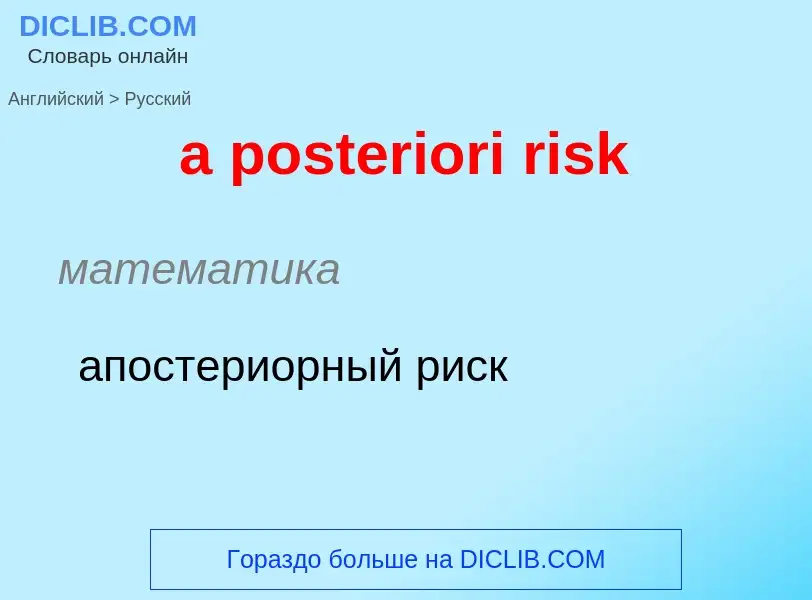Übersetzung und Analyse von Wörtern durch künstliche Intelligenz ChatGPT
Auf dieser Seite erhalten Sie eine detaillierte Analyse eines Wortes oder einer Phrase mithilfe der besten heute verfügbaren Technologie der künstlichen Intelligenz:
- wie das Wort verwendet wird
- Häufigkeit der Nutzung
- es wird häufiger in mündlicher oder schriftlicher Rede verwendet
- Wortübersetzungsoptionen
- Anwendungsbeispiele (mehrere Phrasen mit Übersetzung)
- Etymologie
a posteriori risk - Übersetzung nach russisch
математика
апостериорный риск
a posteriori
Definition
Wikipedia
A priori ("from the earlier") and a posteriori ("from the later") are Latin phrases used in philosophy to distinguish types of knowledge, justification, or argument by their reliance on empirical evidence or experience. A priori knowledge is independent from current experience (e.g., as part of a new study). Examples include mathematics, tautologies, and deduction from pure reason. A posteriori knowledge depends on empirical evidence. Examples include most fields of science and aspects of personal knowledge.
The terms originate from the analytic methods found in Organon, a collection of works by Aristotle. Prior analytics (a priori) is about deductive logic, which comes from definitions and first principles. Posterior analytics (a posteriori) is about inductive logic, which comes from observational evidence.
Both terms appear in Euclid's Elements and were popularized by Immanuel Kant's Critique of Pure Reason, an influential work in the history of philosophy. Both terms are primarily used as modifiers to the noun "knowledge" (i.e. "a priori knowledge"). A priori can be used to modify other nouns such as "truth". Philosophers may use apriority, apriorist, and aprioricity as nouns referring to the quality of being a priori.

 a 309.jpg?width=200)
